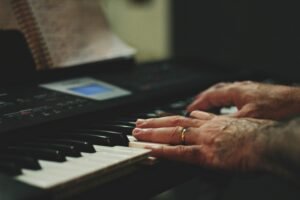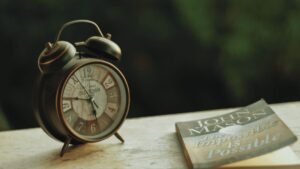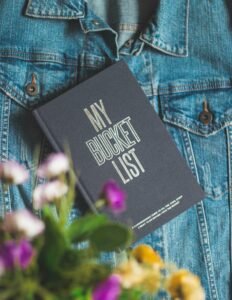100 Hours of Piano Learning, my journey
How I Recorded 100 Hours
Alright, to be completely honest, this article about 100 hours of piano learning refers to 100 ‘recorded’ hours. I began this recording in January, but prior to that, I estimate I had about 100-150 hours of playing over the previous 3 years. However, I was not serious about it; I was inconsistent, unfocused, and erratic in my approach. This is why I decided in January to start “recording” my time.
To record my hours, I used a simple app – Soundbrenner – which is an accompanying app to the Soundbrenner watch, a wearable metronome. The app allows you to track your sessions by simply editing the duration you want to practice, giving the session a title, saving it, and pressing ‘start.’ It will then continue recording the time until you hit the stop icon on the app. It’s a straightforward, no-fuss solution for keeping track of the amount of time you have spent practicing.
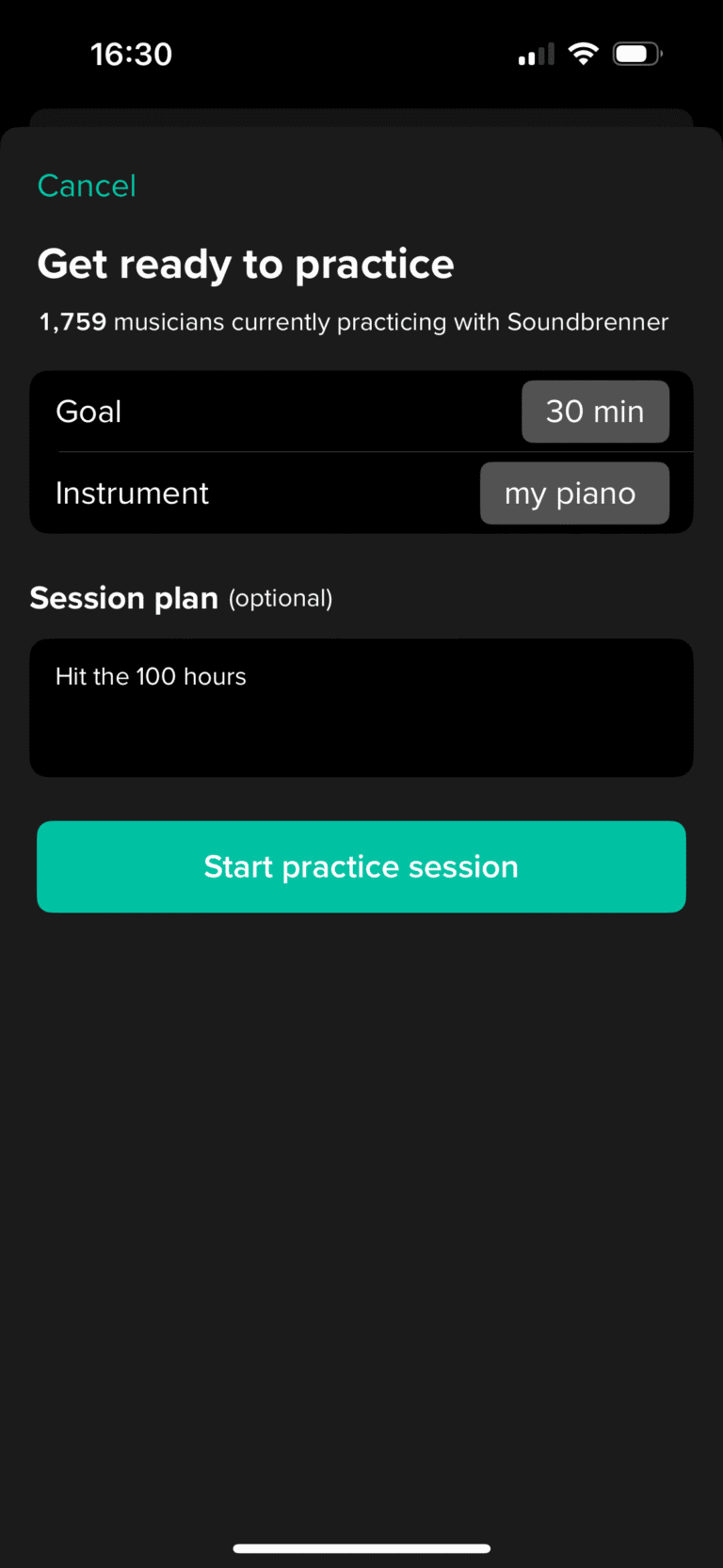
Setting Up My Piano Space
If, like me, you have an active family in the house and younglings running around the place communicating as only younglings can, then you probably need a ‘quiet’ space. A space where you can close the door, put on your headphones and practice. It needs to be somewhere you feel tranquil and where the Piano is the main focus. For me it’s just under the Dormer window in our bedroom. This way, when I get frustrated or need to rest my eyes from the sheet music, I can just gaze out of the window to the trees in the distance. Very calming.
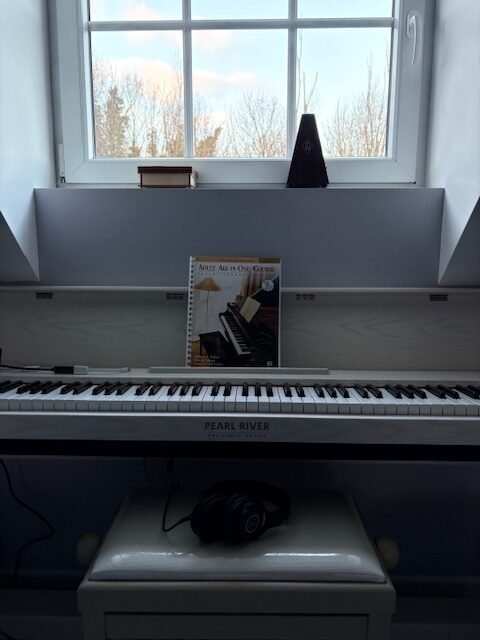
If space is not available, and you can’t find somewhere to practice, then perhaps time could be the solution. Try shifting your practice hours to a time when there is less traffic, allowing you to focus on your art.
Tracking Time: The Good, the Bad, and the Ugly
The Good:
Tracking your practice time can help you stay on track and motivated. It lets you see your progress, spot areas that need more attention, and set achievable goals. By keeping a log, you can celebrate your successes and stay dedicated to your piano journey. If you want to know more about time tracking and how much time to schedule I go into more detail in my post “How long does it take to learn the piano?“
The Bad:
Counting every minute adds a certain ‘other’ action you have to do every time you play. It can cause stress and burnout. It might make you feel pressured to “perform” instead of enjoying the process. If you focus too much on the numbers, you may forget about the music and the joy of playing.
The Ugly:
Relying too much on tracking can make practice feel like a chore instead of a fun activity. It can lead to comparing your progress with others, rather than following your own path. How many times have you seen someone post a video where they say ‘Am I ok, I have been learning for 6 months’ and they are really good. Don’t fall into that trap. The reason to measure time is to compare yourself with how you were in the past. It’s a simple as that.
Finding Motivation: What Kept Me Going
My motivation to keep going came from small increments of improvement. Sure there were some days where I just could not get a particular passage or keep hitting the wrong note or kept missing the timing. But the thing is, you sleep on it, you come back, and somehow the issues of yesterday seem smaller, they reduce and reduce until they are gone, you move forward.
I honestly don’t think I could do it though if I didn’t have a passion for playing. This is the biggest motivation for me, the pure enjoyment I get from being able to play something on this wonderful instrument that was a mystery to me before I started this journey.
What I Achieved in 100 Hours
When I look back on where I was 100 hours ago and where I am now, it really hits home the steps that have been taken. I only hope the next 100 hours goes the same way but that’s all under my control.
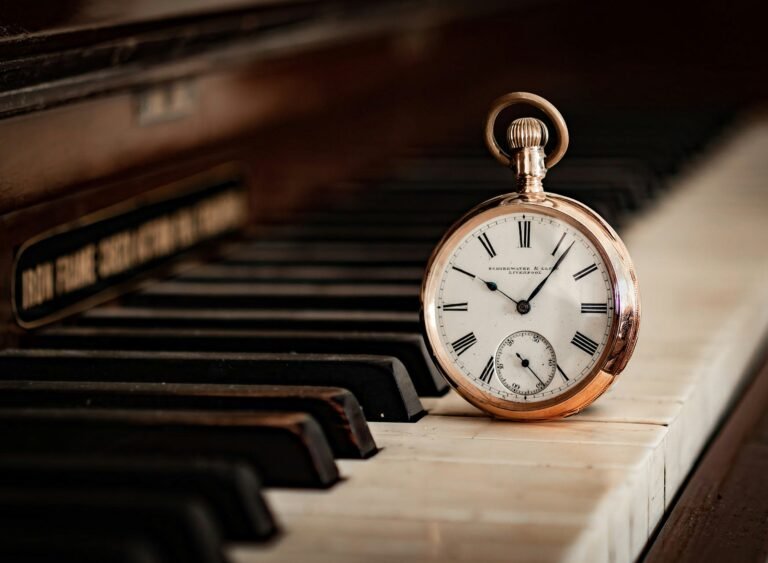
Mastering Basic Chords and Scales
From learning Hanon exercises to playing more expressively and exploring different genres, it has all been rewarding. However, the key -pun intended – thing for me was realizing how simple chords and scales are constructed. Believe it or not, even though I went through the beginner books, there was never a comprehensive view of this until I discovered a simple 20-minute video on Pianote that opened my eyes (and ears). If you want to know what video that was, drop me a line below and I’ll point you in the right direction.
Playing My First Song: A Triumph
Maybe this title is a little misleading. I would not say playing my first song – simply because I had already done this before. Learned the notes, the timing, the chords and played. But here is the thing, understanding how a song is constructed, and using that understanding to learn in a constructive way : The Cord progressions, the intervals used, the range used in the melody. All of this enabled me to accelerate my learning of each new song and find even more enjoyment.
Improvisation: The Unexpected Joy
In a very recent discovery, I have found the joy of improvisation. Not in all music genres, but with recent blues songs I have begun to learn, (the basis of Boogie Woogie), I feel myself wanting to fill gaps using simple repeats in the cords or breaking them down to groups of notes, I also noticed my right hand accidentally hitting two notes in succession and feeling – hey that sound good. The Genre invites you to be more expressive and gives you the freedom to do that. I am really enjoying this aspect.
What Mistakes Did I Make in 100 Hours
I have made a ton of mistakes , that is why this site exists. Not to boast about what I have done, but to share with you what I have learned. And to let you know that making mistakes is normal. being frustrated is normal. It’s all part of the joy of learning the piano.
Skipping Fundamentals: A Classic Rookie Mistake
Even after a few years of practicing I still made the mistake of skipping fundamentals. I should have discovered the Chord construction a lot earlier, for example. I should work on my hand shape, it’s still an issue. But time has always been a factor and my impatience and will to achieve that next song has often won. Something I need to work on in the future.
Overloading on Material: Less Is More
Multiple learning apps, books, video lessons and courses. I have found that I hop between them all. This ‘musical hopscotch’ has been detrimental to my learning goals and achievements. I need to stay structured and focus on one learning path. I am finding I’m drawn towards multiple genres and styles all at once. I need to focus my attention and set short term goals to be achieved. This is probably the hardest part for a self-taught player. It would be great to hear other folks thoughts on this. Let me known the comments what you think.
Neglecting Finger Positioning
I can’t state enough how important finger positioning is. I don’t know about you but when I play, if I get the finger positionoing wrong, I start to feel it. Not only in the flow of how I play but in terms of physical discomfort also. Always , always focus on finger positioning and never more so than at the start of a song. Get your hands in that starting position. Just pause for a while and engrain that into your brain. Once you know a piece, that starting position will be your launchpad to all of your repertoire of songs and your muscle memory , rhythm and learned skills will just take over from there.
What I Learned in 100 Hours
Rather than a self-indulgent view on my progress through video links and my amazing progress. Here are some important life lessons 100 hours of learning the piano have taught me.
Patience: The Ultimate Virtue
Rome was not built in a day, and neither is your ability to play the piano. 100 hours is nothing compared to the time it takes to become good, let alone exceptional at the piano. Be patient with yourself. Day by day you will improve, just keep going.
Listening Skills: Hearing the Music
A wonderful side effect of learning to play the piano is hearing it when you listen to music. It’s a lot like when you speak a language and you hear someone speaking that language, that part of your brain is triggered naturally and it picks up on the individual phrases, nuences and textures.
The Importance of Regular Practice
I personally aim for 1 hour a day, but it’s not easy. juggling family life and commitments with your free time to go and ‘gift’ yourself that time learning the piano can be challenge, but it is so important. I have used 264 days (including today) to get to 100 hours so clearly my target is off. If I can get the next 100 hours in less than 175 days, I’ll be happy. let’s see.
My Plan for the Next 100 Hours
So for the next 100 hours, I ask myself some questions.
- Can I do 100 hours in 100 days ?
- What do I focus on ?
- Will my choice be the right one for me ?
Setting New Goals: What’s Next?
My Goal is to hit the next 100 hours in 100 days but realistically it won’t be hit. Stay tuned to see how I get on by bookmarking this page and following my Facebook and Youtube feeds
Hot tip
Bookmark this page
You can bookmark this page for updates by using the keyboard shortcut Ctrl+D (Windows) or Cmd+D (Mac). Or by using the share - bookmark features on your mobile device
Exploring Different Genres
Over my time so far learning piano I have played; Classical, Traditional, Worship, Contemporary and Pop. But now I am beginning to discover Rhythm and Blues and Boogie Woogie. I have to say I am tempted to go down that path, it’s just so much fun.
Am I making the right choice ?
Frankly, only time will tell, but I have reached out to a trusted source for me – Adult Piano Beginners – a group of thousands of piano beginners that support and encourage each other.I will trust their guidance and see where it takes me.
In conclusion, I have learned a lot in these 100 hours and am looking forward to the next 100 hours. Where I will be then , I don’t know. The only thing I know for sure is I will be better than I am now. What’s your experience with the time you have spent learning? Leave a comment or jump to my Facebook or YouTube spaces and drop me a line there.
Happy Playing, Jon


